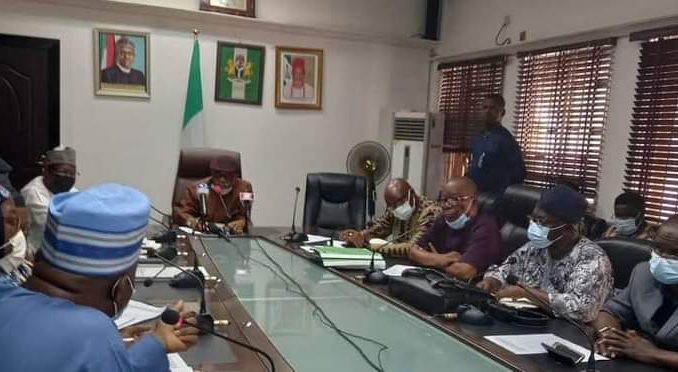
.
The Socio-Economic Rights Accountability Project and other education rights groups, such as the Reform Education Nigeria and Education Rights Campaign, have knocked the regime of the President, Major General Muhammadu Buhari (retd.), over the prolonged shutdown of academic activities in the nation’s tertiary institutions.
Sources report that the strike declared by the Academic Staff Union of Universities entered its 140th day on Monday (today), while the strike declared by the Joint Action Committee of the Senior Staff Association of Nigerian Universities and the Non-Academic Staff Union of Education and other Allied Institutions, which began on March 25, 2022, also entered the 68th day today.
While the National Executive Council of Academic Staff Union of Polytechnics is currently meeting in Jigawa State after calling off a two-week warning strike, the Colleges of Education Academic Staff Union just commenced a two-month strike.
In a statement made available to journalists on Sunday, SERAP’s Deputy Director, Kolawole Oluwadare, noted that the government’s failure to meet ASUU’s demands, implement the agreement it had with the union and satisfactorily resolve the issues, has kept poor Nigerian children at home while the children of the country’s politicians attend private schools.
Oluwadare said, “Inequalities in education have a rolling effect, leading to even more and continued inequalities in the future.
“Apart from being a right in itself, the right to education is also an enabling right. Education creates the voice through which rights can be claimed and protected, and without education, people cannot achieve valuable functioning as part of the living.
“If people have access to education, they can develop the skills, capacity, and confidence to secure other rights. Education gives people the ability to access information detailing the range of rights that they hold together with the government’s obligations.”
Speaking in an interview with our correspondent on Sunday, the Programme Director, Reform Education Nigeria, Ayodamola Oluwatoyin, faulted the silence of critical stakeholders on the academic shutdown.
Oluwatoyin said, “It is saddening that the government has continued to allow negotiations to linger with no concrete end in sight. The Presidency must, as a matter of urgency, take over the negotiations with the unions.”
Also, the co-Convener, Education Rights Campaign, Michael Lenin, said, “The blame for these strike actions that have grounded tertiary education must be placed at the doorstep of the government.
“It is quite unprecedented that all the major unions in the tertiary education sector are all on strike; however, it shows the level of damage that the negligence of successive governments has done to the educational sector through chronic under-funding.”
Efforts to get the Minister of Labour and Employment, Chris Ngige, who has described himself as the reconciliation minister between the Federal Government and the unions, proved abortive as calls and texts sent to his telephone number on Sunday remained unanswered as of the time of filing this report.
When contacted, the National President, ASUP, Dr. Anderson Ezeibe, noted that the union’s National Executive Council would commence its meeting on Tuesday.
“Our NEC is commencing meeting on Tuesday, if we are still not satisfied with the level of implementation of demands so far, a strike may be declared,” he said.











